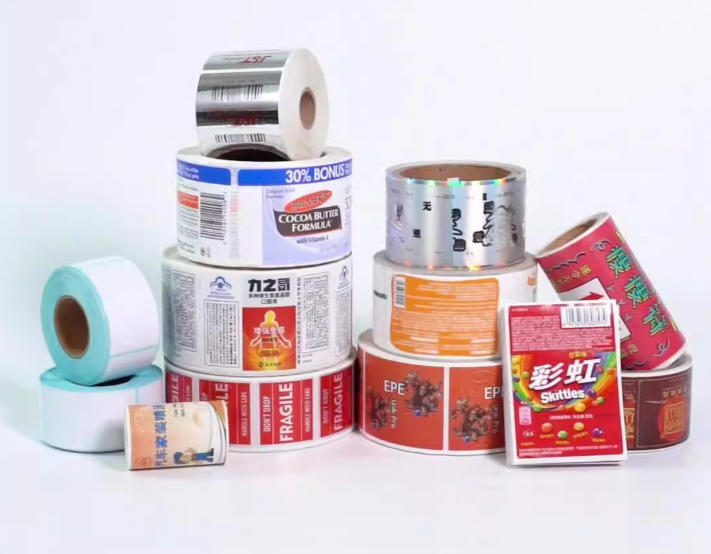Synthetic paper, also known as chemical film paper, polymer paper, and plastic paper, is primarily made from organic resins such as polyethylene, polypropylene, and polystyrene. During the manufacturing process, polyolefin resin and inorganic fillers are melted, extruded into a film, and stretched along different axes. The film is then pressed to make it opaque and improve its whiteness, creating synthetic paper. Synthetic paper is a new plastic material that combines the properties of both plastic and paper. We have compiled information about synthetic paper labels and their advantages as follows:

I. Advantages of Synthetic Paper for Label Printing:
1. The production process is pollution-free, requiring no wood or natural plant fibers as raw materials. This conserves significant forest resources and reduces environmental pollution.
2. Even if the product is burned after use, since its plastic base contains only carbon and oxygen, no toxic or harmful gases are produced. It is 100% recyclable and reusable, economical, and environmentally friendly.
3. Light weight, high strength, and tear resistance. Whiteness and opacity can reach over 90%, with excellent shielding properties, UV stability, and durability.
4. Smooth surface, dimensional stability, excellent printing performance, and good printability. The special coating surface allows for thermal transfer printing and is also suitable for pencil or ballpoint pen marking.
5. Excellent processability. It can be processed using cutting, die-cutting, embossing, hot stamping, drilling, sewing, folding, and gluing.
6. Long storage life, mothproof, waterproof, chemical-resistant, and oil-resistant.
7. Suitable for direct food contact.
II. Classification of Synthetic Paper:
Synthetic paper can be categorized by raw material into PP synthetic paper, HDPE synthetic paper, PS synthetic paper, PVC synthetic paper, PET synthetic paper, and ABS synthetic paper. PP synthetic paper is the predominant type of paper produced domestically. In general, synthetic paper represents a significant innovation in modern papermaking and has broad application prospects.
3. Applications of synthetic paper in label printing:
It is suitable for producing high-quality labels for daily chemical products, as well as promotional labels for cosmetics and personal hygiene products. It is also suitable for applications requiring durability and moisture resistance, such as gasoline barrel labels and labels for daily chemical products. It is an ideal label material for polypropylene containers and environmentally friendly labels. Some synthetic papers are particularly suitable for wet wipe labels; some specially coated synthetic papers can also be used for heat transfer printing.
